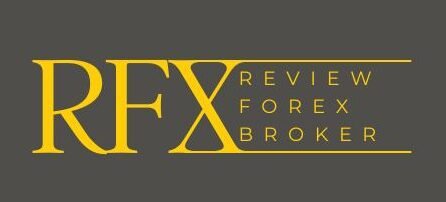The forex market is known for its volatility, driven by factors such as geopolitical events, economic shifts, natural disasters, and market sentiment. Uncertainty can create both opportunities and risks for traders, making it crucial to have the right tools and support in place. This is where forex brokers play a vital role in helping traders navigate through unpredictable times. In this blog, we will explore how brokers assist traders in managing uncertainty, allowing them to make more informed and confident trading decisions.
1. Access to Real-Time Market Data and Analysis
One of the most important aspects of navigating uncertainty is having access to up-to-the-minute data and analysis. Forex brokers provide traders with advanced trading platforms that offer real-time data, market news, and analysis to help them stay informed and make timely decisions.
- Market News and Alerts: Most brokers offer integrated news feeds from reputable sources such as Reuters or Bloomberg. These news updates keep traders aware of breaking developments that can influence currency movements, such as central bank decisions, economic reports, or political events.
- Economic Calendars: Brokers often provide economic calendars that list upcoming economic events, such as interest rate announcements, employment data, and inflation reports. Traders can use this information to anticipate market movements and adjust their strategies accordingly.
Having access to real-time information is critical when markets are volatile, allowing traders to react quickly and avoid being blindsided by sudden price swings.
2. Risk Management Tools
In times of uncertainty, effective risk management is essential. Forex brokers provide a range of risk management tools to help traders protect their positions and minimize potential losses.
- Stop-Loss and Take-Profit Orders: Stop-loss orders automatically close a trade when the market moves against a trader by a predetermined amount, while take-profit orders lock in gains when the market reaches a target level. These tools allow traders to set their risk limits and avoid emotional trading decisions.
- Trailing Stops: A trailing stop moves in tandem with a favorable price movement, helping traders lock in profits while keeping some room for further gains. This dynamic feature is particularly useful in volatile markets, where prices can fluctuate rapidly.
- Negative Balance Protection: Many brokers now offer negative balance protection, ensuring that traders cannot lose more money than they have in their accounts. This feature is especially valuable during periods of extreme volatility, where market gaps can lead to significant losses.
By using these risk management tools, traders can navigate uncertain market conditions with a higher degree of control and confidence.
3. Educational Resources and Webinars
Education is crucial for traders, especially during uncertain times when markets may behave unpredictably. Brokers often provide a wealth of educational resources, including articles, video tutorials, and live webinars to help traders understand market dynamics and refine their strategies.
- Market Insights and Analysis: Brokers frequently publish daily or weekly market reports that provide expert analysis on key market movements and potential trading opportunities. These reports help traders stay updated and gain deeper insights into market behavior.
- Strategy Webinars: Many brokers host live webinars where expert traders or analysts discuss current market trends, strategies, and risk management techniques. These webinars allow traders to learn from professionals and gain a better understanding of how to navigate volatile markets.
- Demo Accounts: Brokers typically offer demo accounts where traders can practice trading in real-time market conditions without risking actual capital. This is a valuable tool for learning how to handle market uncertainty and test strategies before implementing them in live trading.
Through continuous education and practice, traders can better equip themselves to handle periods of market instability and make more informed trading decisions.
4. Leverage and Margin Adjustments
During times of uncertainty, market conditions can change rapidly, and what might have been a safe trading environment can quickly become risky. Many brokers allow traders to adjust their leverage and margin requirements to better manage risk.
- Lowering Leverage in Volatile Markets: While leverage can amplify profits, it can also magnify losses during uncertain times. To help mitigate risk, brokers allow traders to lower their leverage levels during periods of high volatility. This helps reduce exposure and allows traders to maintain control over their trades.
- Margin Call Alerts: Brokers typically offer margin call alerts, notifying traders when their account is at risk of falling below the required margin level. These alerts enable traders to take necessary actions, such as adding funds to their account or closing positions, to prevent liquidation.
By allowing flexibility in leverage and margin, brokers help traders manage their risk exposure more effectively in turbulent market conditions.
5. Automated Trading and AI Assistance
Automation and AI tools are becoming increasingly popular in forex trading, particularly during periods of uncertainty. Automated trading systems allow traders to set predetermined rules for entering and exiting trades, ensuring that emotions and market noise do not interfere with their strategy.
- Expert Advisors (EAs): Brokers offer trading platforms that support Expert Advisors, which are automated trading strategies programmed to execute trades based on specific criteria. EAs can help traders take advantage of market opportunities without needing to constantly monitor the market, which is especially beneficial during unpredictable times.
- AI-Driven Trading Signals: Some brokers provide AI-powered tools that analyze market data and generate real-time trading signals. These tools can help traders make more informed decisions by identifying potential entry and exit points based on historical patterns and real-time market conditions.
Automation and AI allow traders to maintain a disciplined approach, even when markets are moving rapidly or erratically.
6. Multi-Asset Trading for Diversification
Diversification is a key strategy for managing risk, especially during periods of uncertainty. Forex brokers often provide access to a wide range of trading instruments beyond currency pairs, such as commodities, indices, and stocks.
- Diversifying Across Asset Classes: By offering multi-asset trading, brokers enable traders to spread their risk across different markets. For example, during a currency market downturn, traders might seek opportunities in commodity markets or stock indices to offset potential losses.
- Hedging with Safe-Haven Assets: In times of economic or geopolitical uncertainty, traders often flock to safe-haven assets like gold or the Japanese yen. Many brokers offer these assets, allowing traders to hedge their positions and protect themselves from adverse market movements.
By providing access to various asset classes, brokers help traders build diversified portfolios that can withstand periods of uncertainty and market instability.
7. Customer Support and Personalized Assistance
In uncertain markets, timely and responsive customer support can make all the difference. Forex brokers offer dedicated support teams to help traders with technical issues, account management, and trade execution.
- 24/7 Customer Support: Many brokers offer around-the-clock customer support, ensuring that traders can get assistance whenever they need it, no matter where they are located.
- Personalized Account Management: Some brokers provide personalized account managers who offer tailored advice and support, particularly for high-volume or professional traders. These account managers can help traders navigate uncertain markets with customized strategies and insights.
Responsive customer support gives traders peace of mind, knowing that help is available whenever it’s needed.
Conclusion: Navigating Uncertainty with the Right Broker
Uncertainty in the forex market is inevitable, but with the right broker, traders can manage risks and take advantage of opportunities even in volatile conditions. From offering real-time data and analysis to providing essential risk management tools, educational resources, and automated trading systems, brokers play a crucial role in helping traders make informed and confident decisions.
By choosing a broker that offers comprehensive support, traders can feel more equipped to navigate the ups and downs of the forex market, minimizing risks while maximizing potential rewards.

